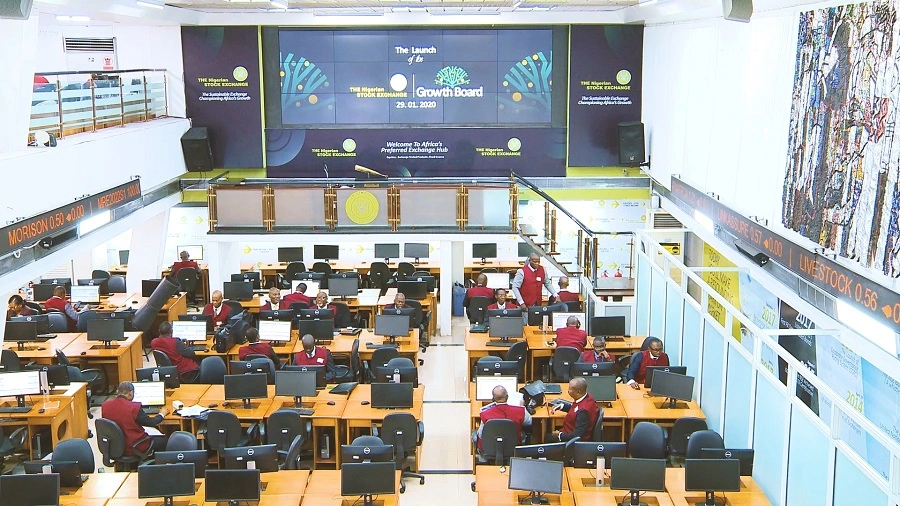Foreign investors’ transactions on the Nigerian Exchange Limited (NGX) reached a total of N744.34 billion in the first 10 months of 2024, reflecting a substantial increase of 156 percent year-on-year (YoY) compared to N291.38 billion recorded during the same period in 2023. This significant rise is largely attributed to the Central Bank of Nigeria’s (CBN) reforms in the foreign exchange market, which have positively impacted foreign investor participation.
The NGX provided these figures in its Domestic and Foreign Portfolio Investment (FPI) Report, which was made available to the investment public in Lagos. The report highlights that total transactions on the Nigerian Exchange from January to October 2024 stood at N4.471 trillion, an impressive increase from N2.933 trillion recorded during the same period in 2023.
In the period under review, the value of transactions executed by domestic investors far exceeded those of foreign investors. Domestic transactions reached N3.727 trillion, accounting for 83.35 percent of total market transactions, while foreign investors accounted for 16.65 percent of the total transaction value, amounting to N744.34 billion.
A deeper analysis of the data reveals that foreign investor inflows amounted to N344.30 billion, while outflows stood at N400.04 billion. This indicates that while foreign investors brought in a significant amount of capital, they also took a larger sum out of the market, leading to a net outflow of funds.
Over a 17-year period, domestic transactions have shown a slight decline of 10.94 percent, from N3.556 trillion in 2007 to N3.167 trillion in 2023. Similarly, foreign transactions have experienced a sharper decline of 33.28 percent, from N616 billion in 2007 to N411 billion in 2023. Despite these declines, domestic transactions still represented about 89 percent of total market activity in 2023, while foreign transactions made up only about 11 percent.
Speaking on the development, Mr. Ambrose Omordion, the Chief Operating Officer of InvestData Consulting Limited, stated that while domestic investors are expected to remain the largest contributors to total transaction values, their buying activity could face limitations due to the elevated yields in the fixed income market. This, according to Omordion, is a result of the Central Bank’s tight monetary policy stance. However, he expressed optimism about the potential for increased foreign investor participation, citing improved foreign exchange market liquidity and reduced naira volatility as key factors that could support higher foreign investments in the Nigerian equities market.
Omordion also pointed out that, in the face of challenges, Nigerian markets are showing resilience, and with further policy adjustments and market liquidity improvements, foreign investors are likely to continue to see Nigeria as an attractive market.
The data underscores the continuing imbalance between domestic and foreign investment activities in the Nigerian stock market, with foreign investors exerting a relatively smaller influence compared to domestic players. However, the recent surge in foreign transactions suggests that the ongoing market reforms and improvements in exchange rate stability are starting to yield tangible benefits for the market, making it more attractive for foreign investors.
This upward trend in foreign transactions reflects the broader positive sentiment in the Nigerian economy, driven by reforms aimed at enhancing the investment climate and improving the business environment. Nonetheless, experts continue to stress the need for further structural improvements, especially in areas like infrastructure and regulatory frameworks, to sustain and build on the momentum of foreign investment in Nigeria’s capital markets.





